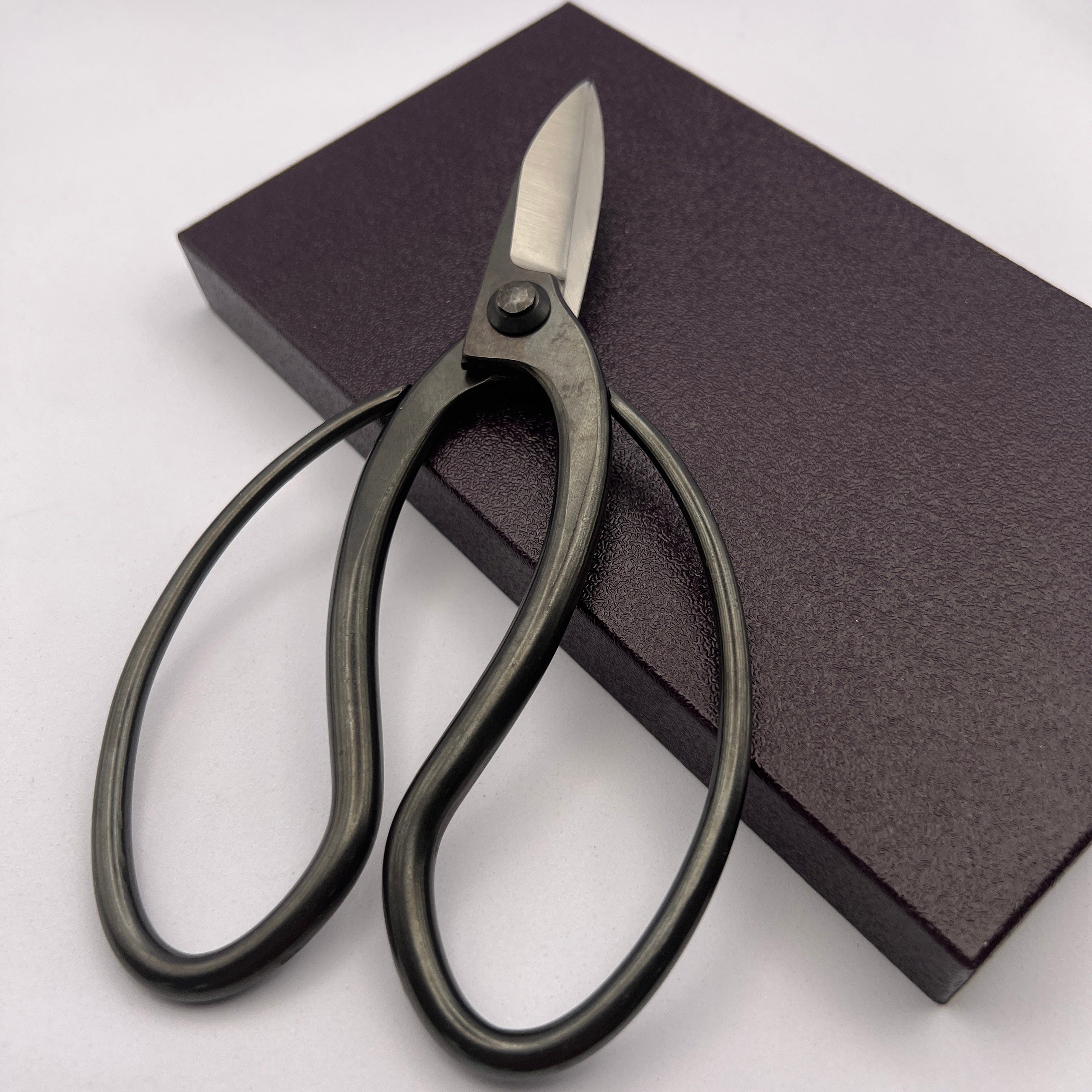
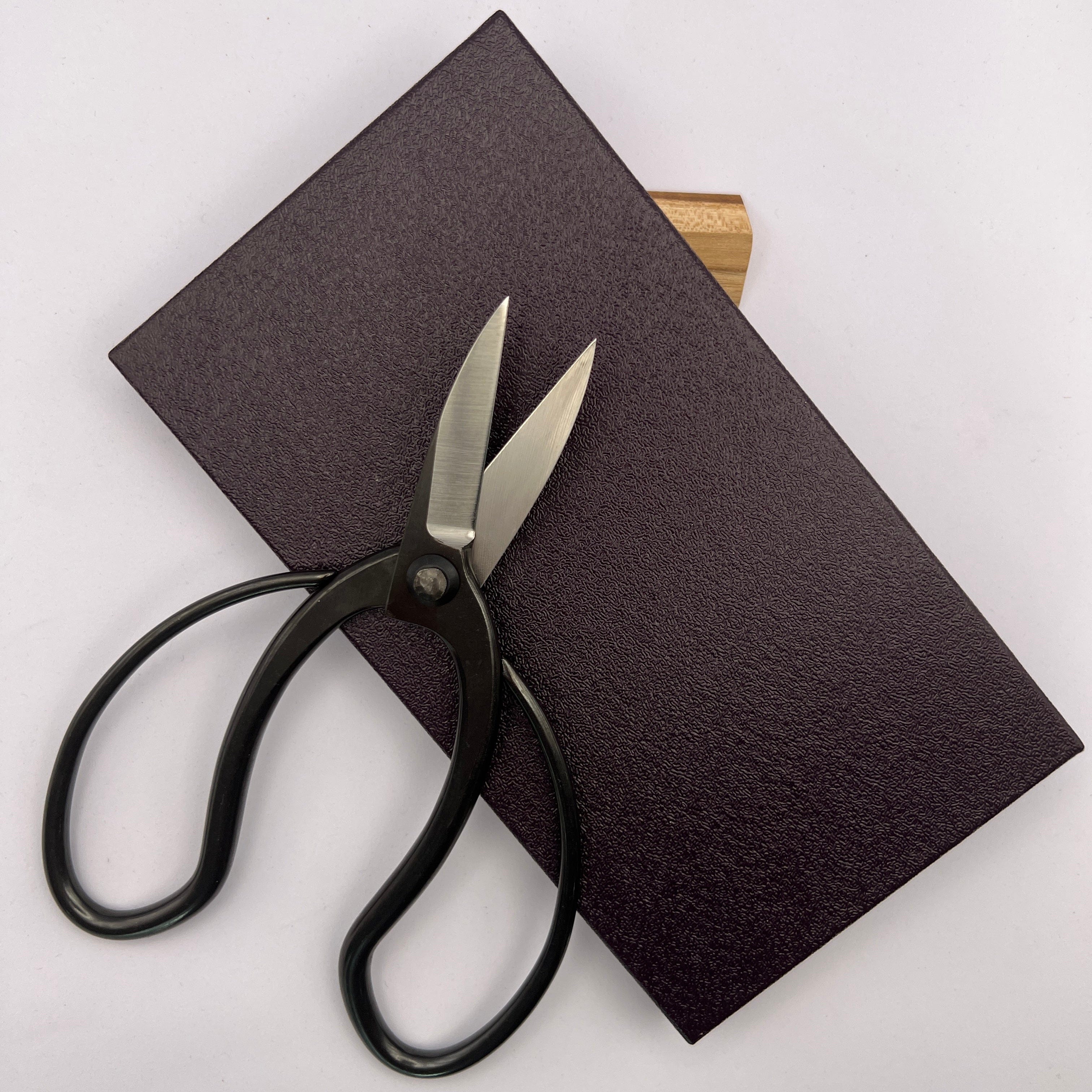
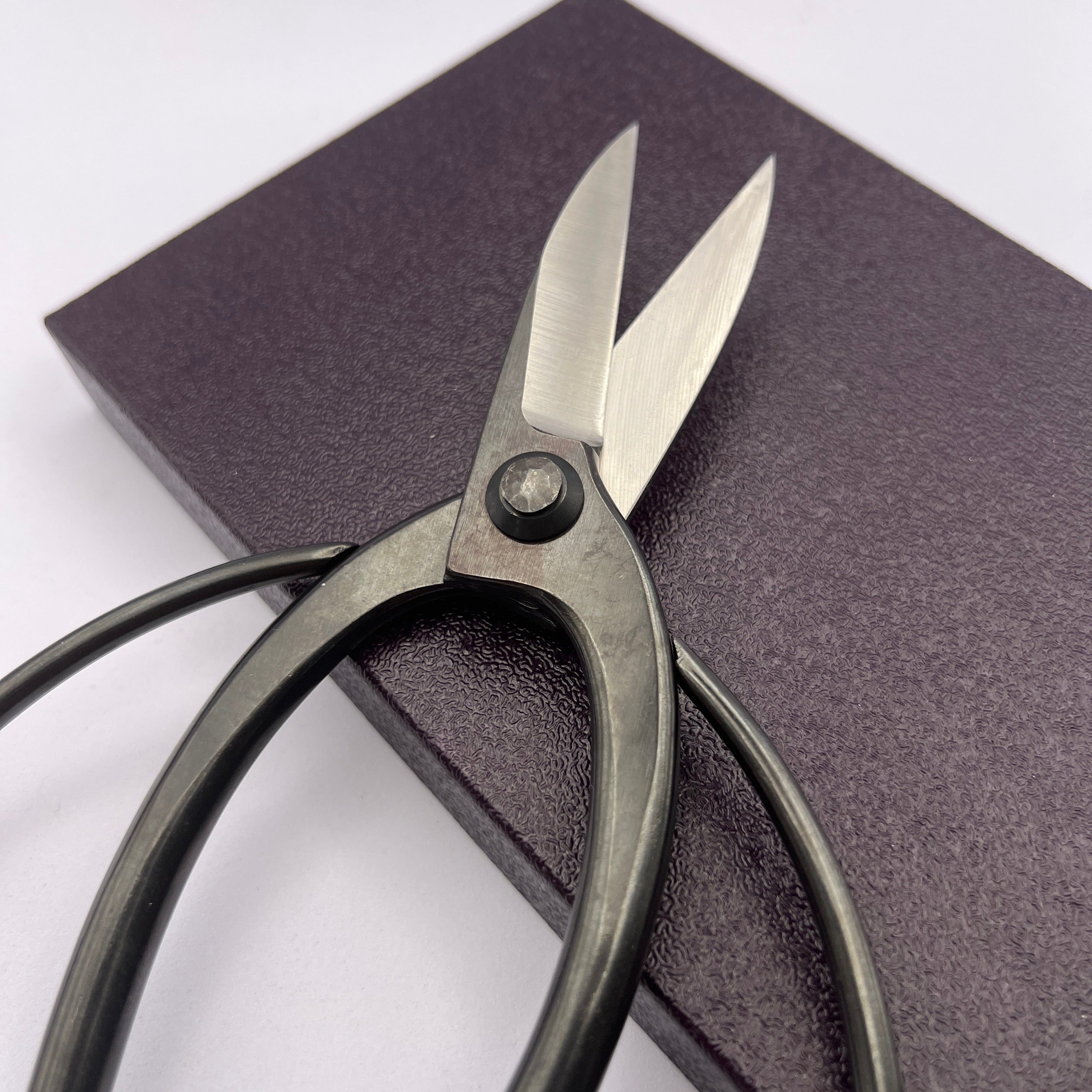
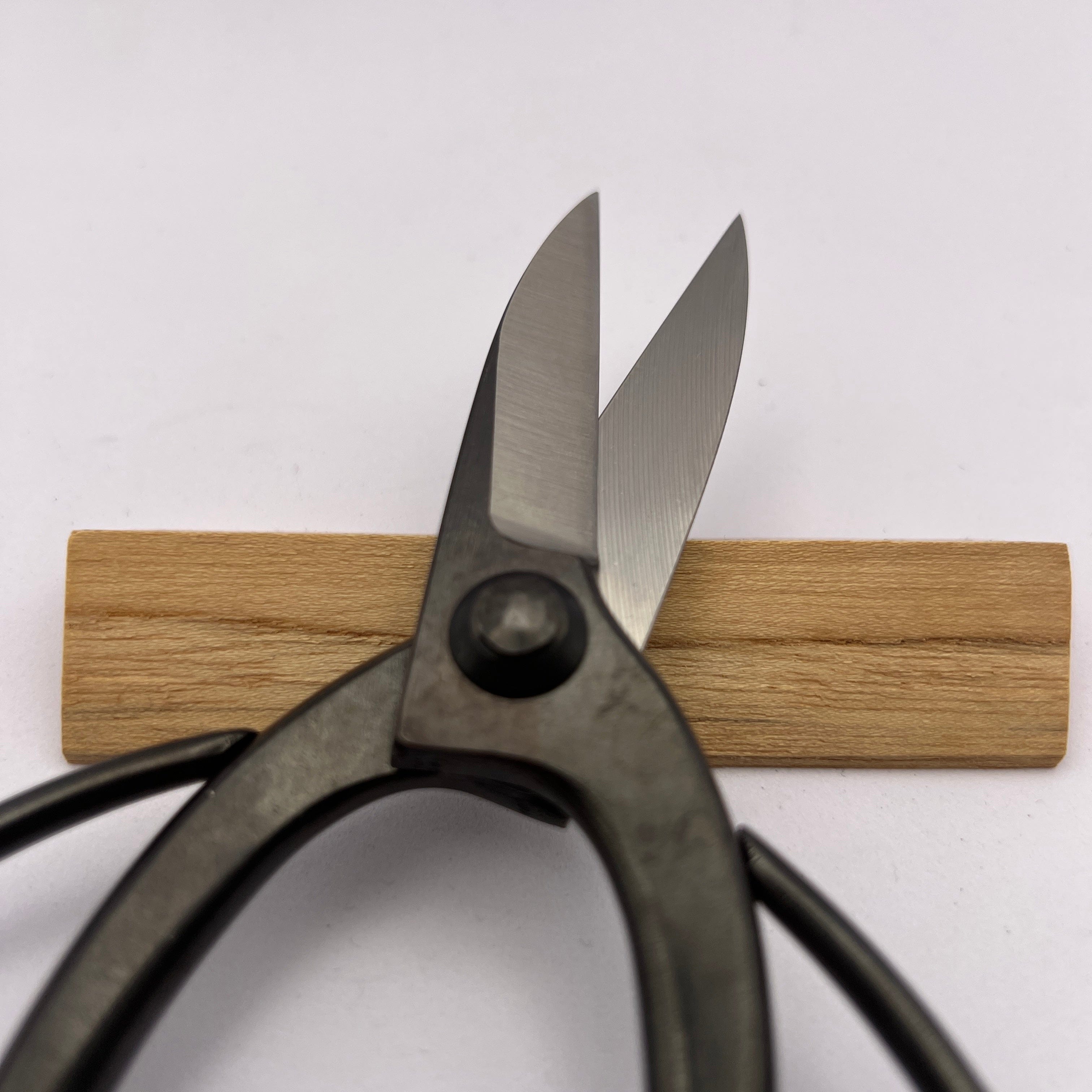
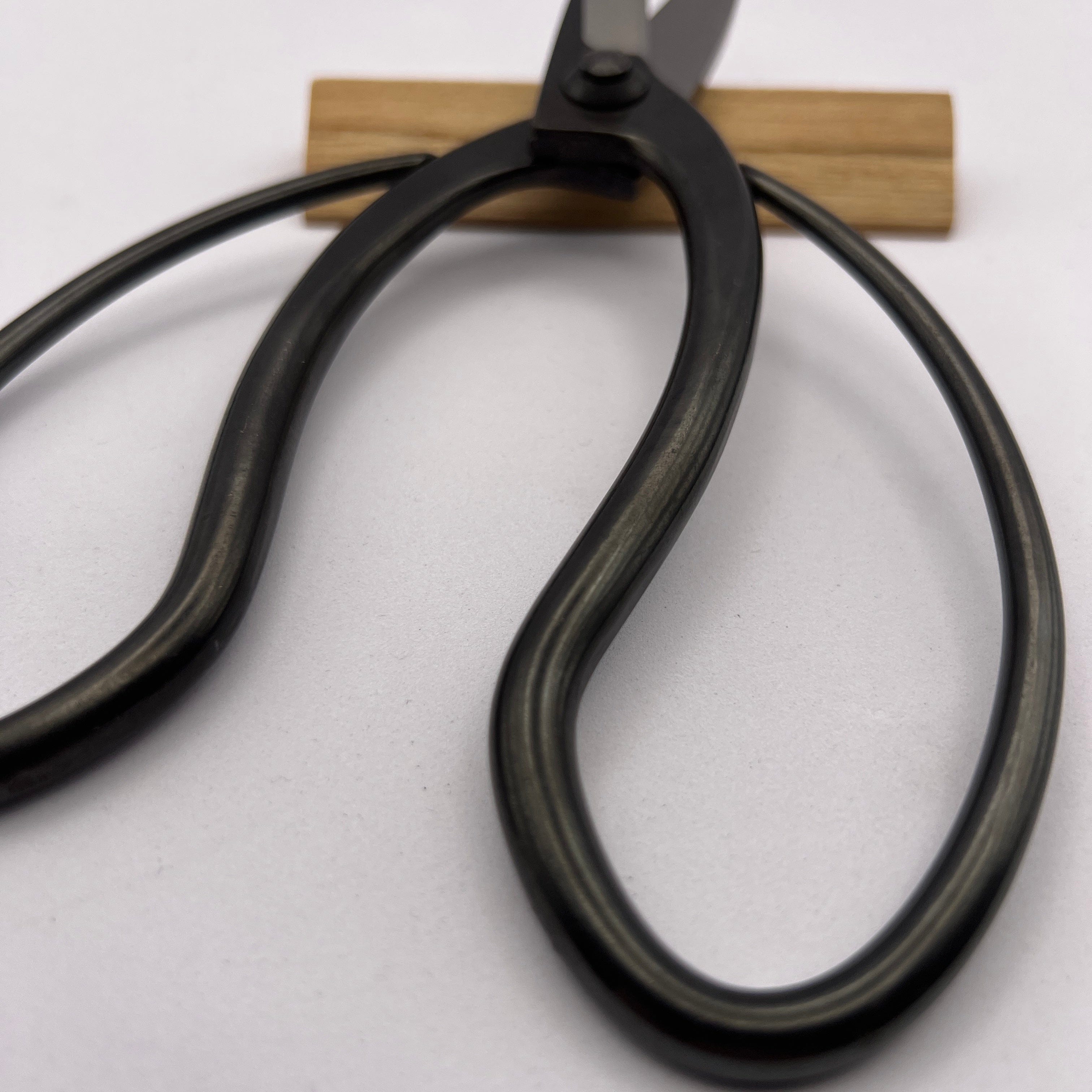
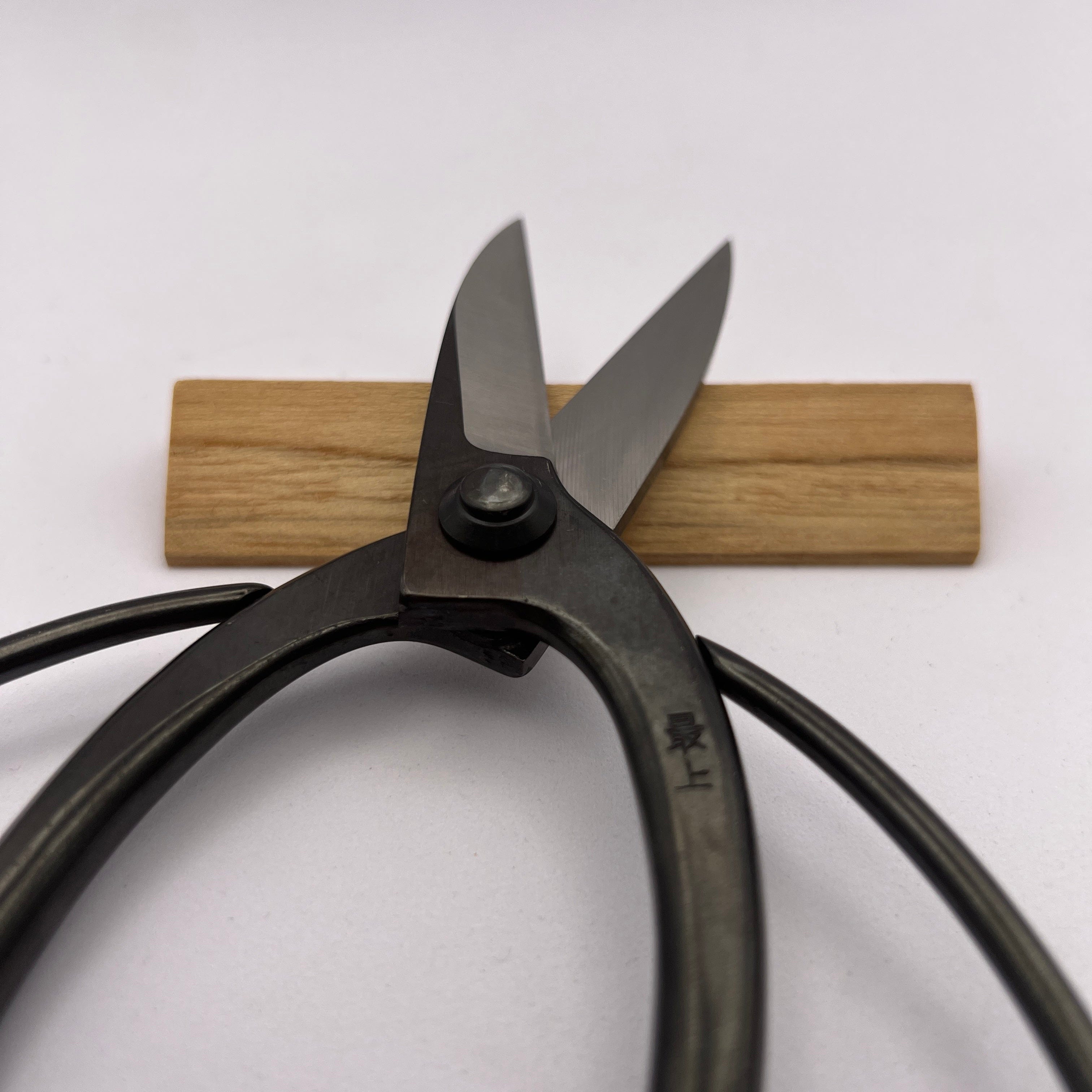
Forged Bonsai Scissors

Why You'll Love It?
Fast & Secure Delivery from Japan to your Door [Shipping Policy]
No surprise U.S. customs fees. [How we handle U.S. Customs for you]
Shop Safely with Encrypted Checkout and Verified Gateways.
Pairs well with

Forged Bonsai Scissors
Control Meets Craft – Forged Bonsai Scissors Handcrafted in Seki, Japan
Every snip carries intention. These Forged Bonsai Scissors are handcrafted in Seki, Japan—a city with centuries of blacksmithing legacy. Forged from carbon steel, the blades are designed for crisp, decisive cuts that preserve branch integrity and promote healthy regrowth. The distinctive oval handles provide a superior grip and finger control, enabling nuanced trimming with confidence and ease.
Crafted for Balance and Performance
Unlike mass-produced alternatives, these scissors reflect time-honored forging techniques that enhance edge retention and weight balance. The symmetrical design, measuring 8 inches long, rests naturally in the hand, reducing fatigue during long pruning sessions. Whether you're refining twigs or performing precise cuts on inner branches, the blades move in harmony with your hand’s motion, allowing for intricate guiding of your bonsai.
A Tool That Ages with Grace
The natural blackened finish will gain character over time, while the cutting edge remains sharp through years of regular use. These scissors come in a textured presentation box, making them an ideal gift for bonsai lovers or professionals seeking long-term value in their tools. Each pair includes care instructions to ensure longevity and optimal performance.
In bonsai, every detail matters. With these scissors, every cut is deliberate, every tool a tradition honored.
Product Information
Care instructions
FAQs
All you need to know about Japanese Knives.
What makes Japanese knives different from Western knives?
Japanese knives typically feature harder steel, thinner and sharper blades, and lighter handles compared to Western knives. These characteristics allow for precision cutting, especially suited for detailed culinary tasks, but require careful maintenance to preserve sharpness and avoid damage.
How should I maintain and sharpen a Japanese knife?
Regularly hand-wash and dry your knife immediately after use to prevent rust and corrosion. Sharpen using a whetstone designed specifically for Japanese knives, maintaining a consistent angle (usually around 15 degrees). Avoid dishwashers and harsh cleaning methods to preserve blade integrity.
Can Japanese knives be used for any type of food preparation?
While versatile, certain Japanese knives are specialized: Gyuto (chef’s knife) handles most ingredients, Santoku excels in chopping vegetables and meats, while Yanagiba is specifically suited for slicing sashimi and seafood. Selecting the right knife enhances performance and preserves blade condition.
Why are Japanese knives often more expensive?
Japanese knives are handcrafted, employing traditional methods and premium high-carbon steel, which contributes to their exceptional sharpness, durability, and aesthetics. This artisanal craftsmanship and the high-quality materials used typically result in higher pricing compared to mass-produced knives.
Are Japanese knives suitable for beginners?
Yes, beginners can effectively use Japanese knives, but it’s essential to start with user-friendly styles like Santoku or Gyuto, known for balanced handling and versatility. Proper care, handling, and regular sharpening practices will ensure a positive experience, even for novices.

